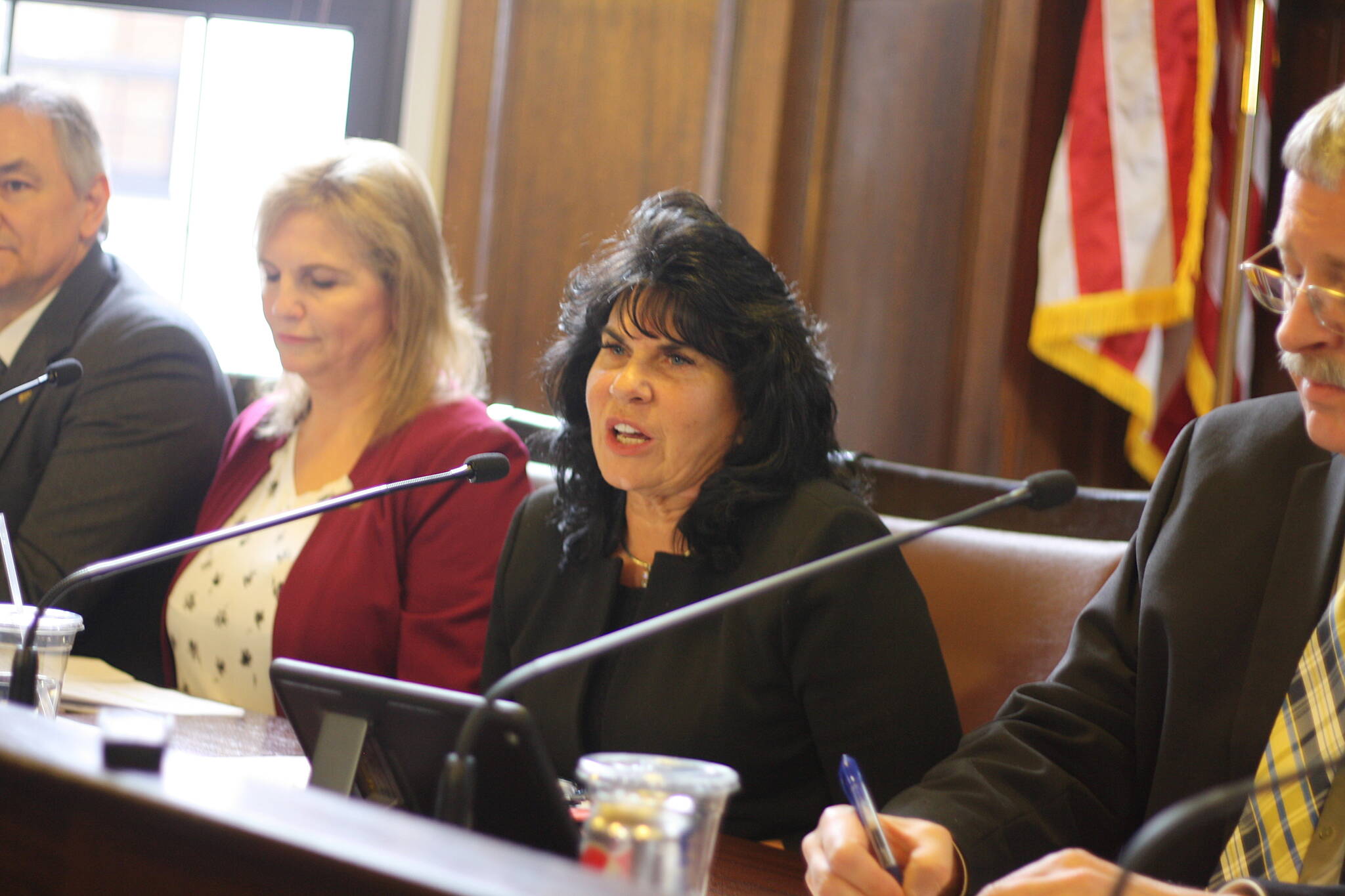Attempts to claw back a seemingly “finalized” pay raise for legislators and top executive branch members are being made at the Alaska State Capitol in the wake of ongoing criticism, but the efforts primarily driven by the House are being spurned by the Senate.
An invitation for a joint session to cast a vote negating the raises was issued Tuesday by House Speaker Cathy Tilton, a Wasilla Republican who presides over the Republican-led majority. The Democratic-led House minority joined the effort Wednesday by introducing a bill to eliminate the raises.
A public furor arose when a five-member salary commission, after all of its members were hastily replaced by Gov. Mike Dunleavy in a series of ousters and resignations, last week unanimously approved raises of 67% for legislators and about 20% for the governor and his commissioners.
The former commission members recommended the executive branch increases while rejecting an increase for legislators in a report last November. The Legislature, in response, unanimously passed a bill earlier this month rejecting the executive branch raises.
Dunleavy, in effect, approved the raises for both branches of government by vetoing the Legislature’s bill on Monday. That set the stage a day later for multiple efforts to negate the raises, beginning with Tilton during a press conference calling for a joint veto override session.
“I wouldn’t say it was a good public process or bad public process,” she said, referring to the replacement of the salary commission and subsequent actions. “It was definitely an unusual public process and that’s why I’m responding.”
“Right now, there are many big issues that should take precedence over the Legislature having pay raises and those issues are before us right now.”
Senate President Gary Stevens, a Kodiak Republican, sent a letter Wednesday morning to Tilton stating “the Senate respectfully declines the invitation” to meet in joint session during the afternoon. The bipartisan Senate majority leadership held its own news conference Tuesday and defended the pay raises — if not giving the process for them perfect marks.
“I support the work the governor did,” said Sen. Lyman Hoffman, a Bethel Democrat. “It may have been clumsy, but it’s a very delicate question.”
The $50,400 salary for legislators has remained unchanged since 2010 and the governor’s $145,000 salary unchanged since 2011, prompting much of the support for the raises.
“We all realize it could have been done a little smoother, but we also could have had a functioning salary commission during the past decade,” said Sen. Bert Stedman, a Sitka Republican.
In addition to arguing raises are necessary to attract candidates for public office who are not independently wealthy due to the cost of living in Juneau for at least four months a year in addition to expenses back home, Senate leaders said there are numerous questions about what legal effect a veto override would have since the bill addressed the original salary commission report rather than the amended version.
A motion to force the Senate to participate in a joint session was made during Wednesday’s floor session by Sen. Robert Myers, a North Pole Republican, but it was voted out of order by Stevens and his decision was upheld by a 16-2 vote.
Dunleavy, during his own news conference Wednesday called for the purpose of announcing the spring revenue forecast, addressed and defended the pay increases as well.
“I know some want to believe that there was some nefarious or dark reason why the members of the commission were removed, but as I explained earlier all statutes, the constitution, regulations, you name it, were followed, have been followed and will be followed,” he said.
The new salaries will be $84,000 for legislators starting next January if the raises take effect. New executive branch salaries starting July 1 will be $176,000 for the governor, $140,000 for the lieutenant governor and $168,000 for commissioners, who last got a raise in 2015.
But while the joint session was rejected Wednesday, the Legislature could still take action to negate the raises. Bills doing just that were introduced by the House minority caucus and by state Sen. Shelley Hughes, a Palmer Republican who like Meyers (who co-sponsored her bill) is one of three senators not affiliated with the 17-member majority.
The House minority’s bill also directs the Department of Administration to conduct a near-term study of whether salaries and benefits for state employees are competitive.
“We do need to regularly adjust compensation levels for everyone, but we should focus on supporting police, teachers, and other front-line public servants before funding pay increases for high-level executives and the Legislature,” said Rep. Donna Mears, an Anchorage Democrat, in a prepared statement.
Hughes, during a floor speech Wednesday, said she opposed the “ridiculously high increment of a raise,” especially in the wake of the disappointing state revenue forecast the day before, and legislators should only be able to vote on future Legislatures rather than themselves during the current session.
“The process is fraught with conflict of interest,” she said.
• Contact reporter Mark Sabbatini at mark.sabbatini@juneauempire.com

